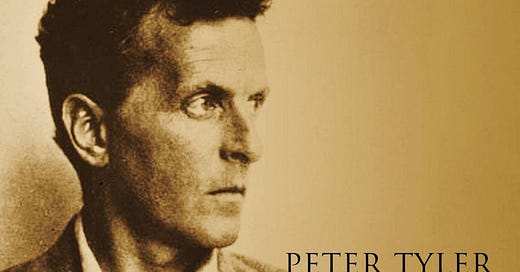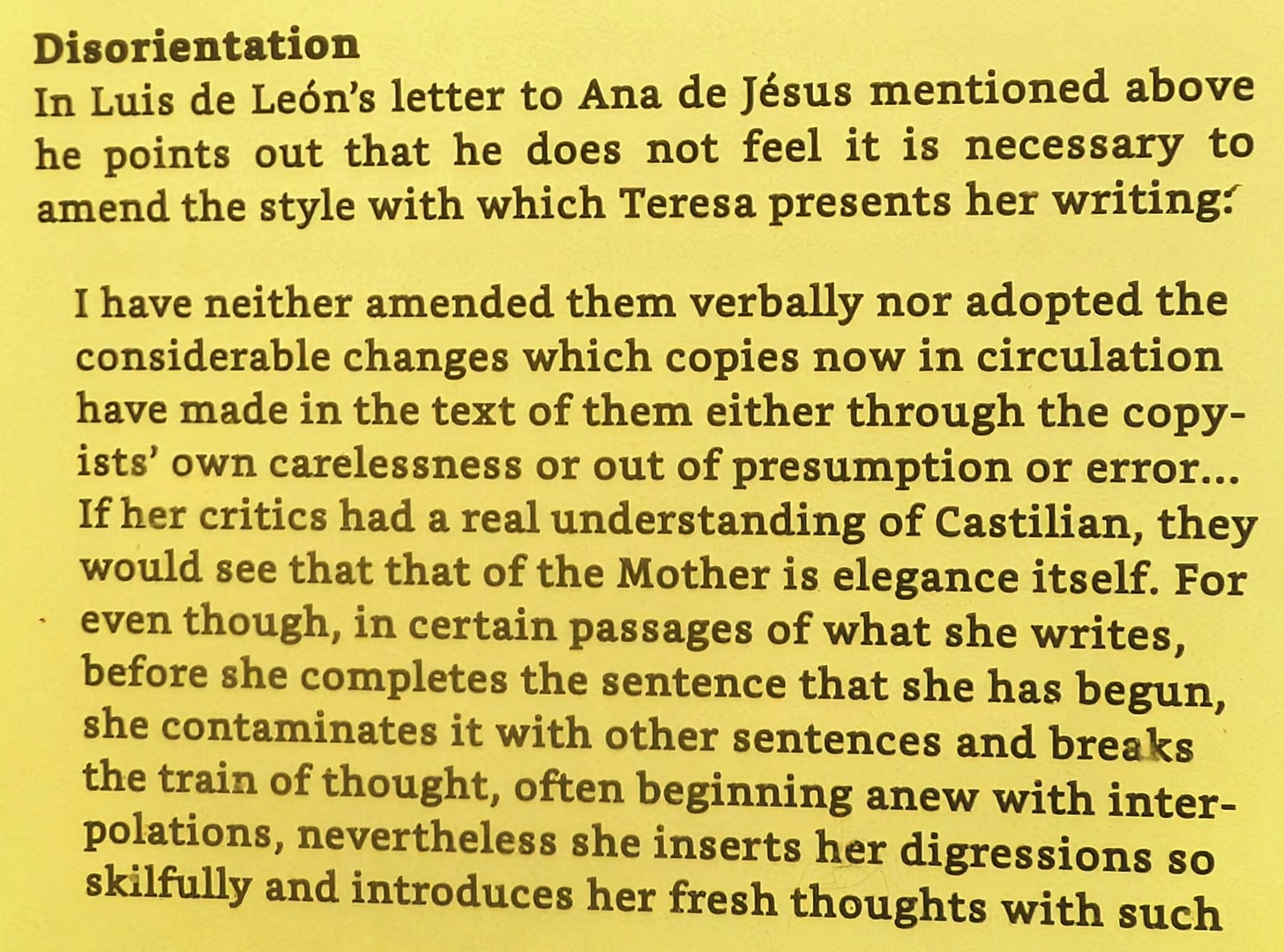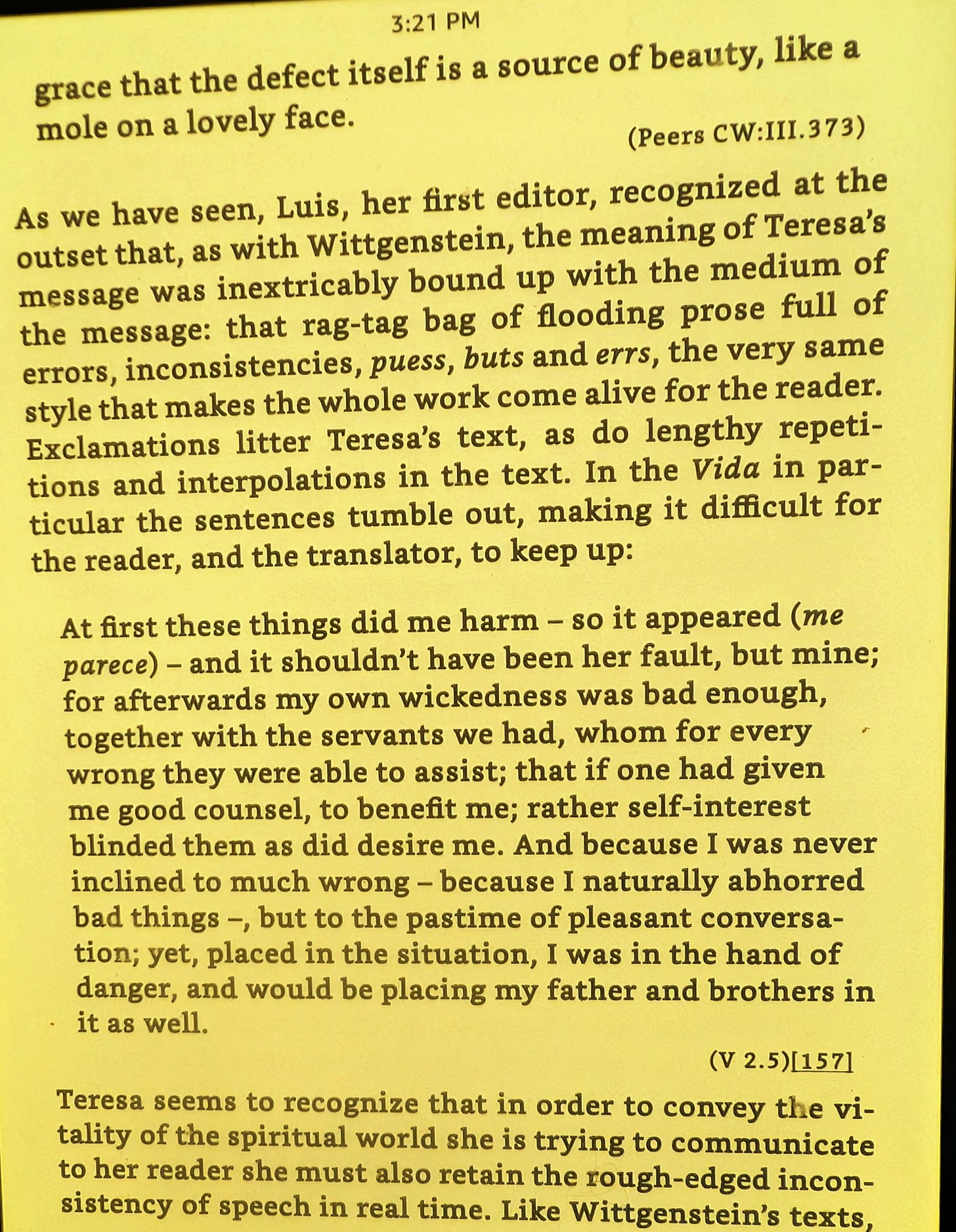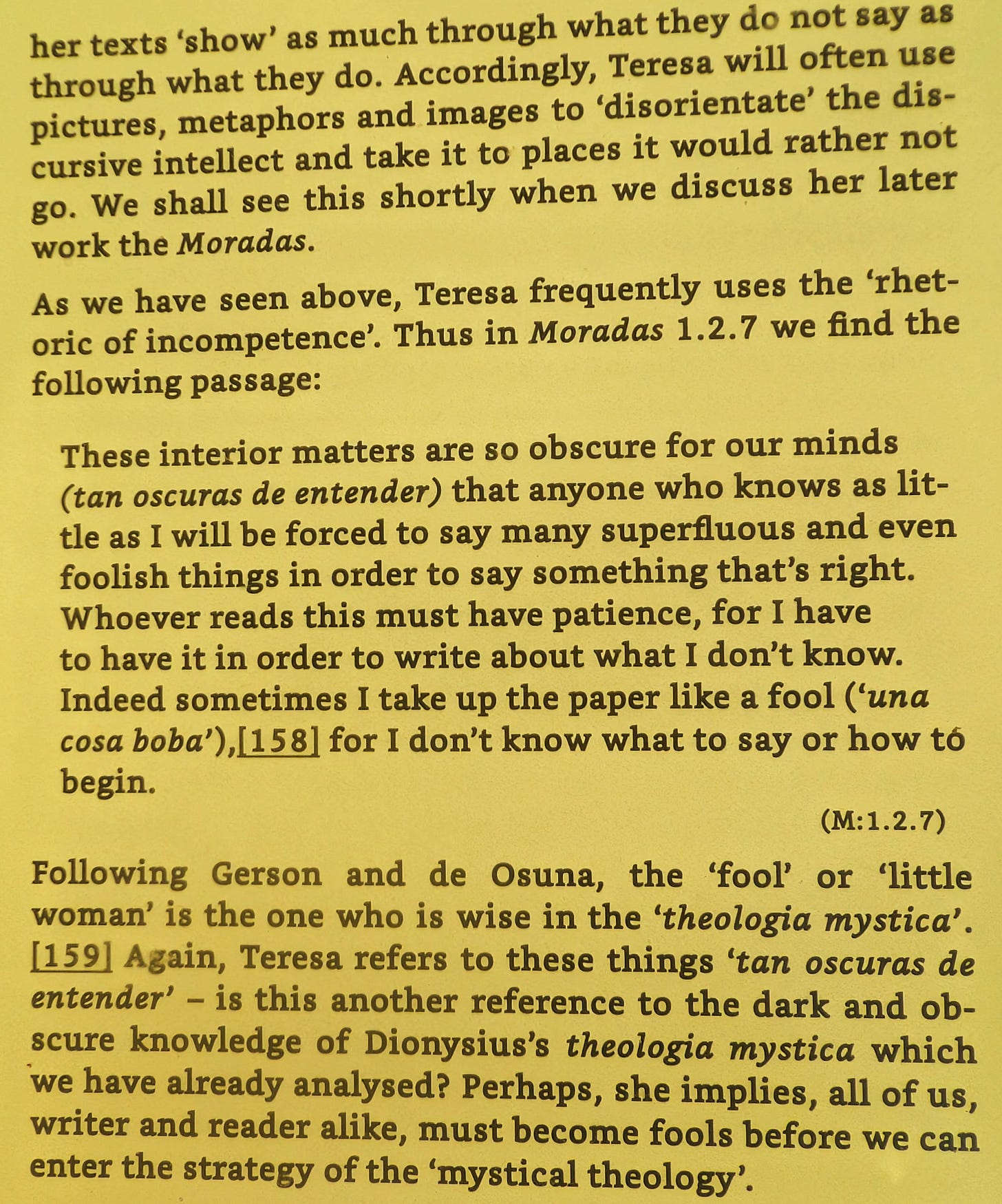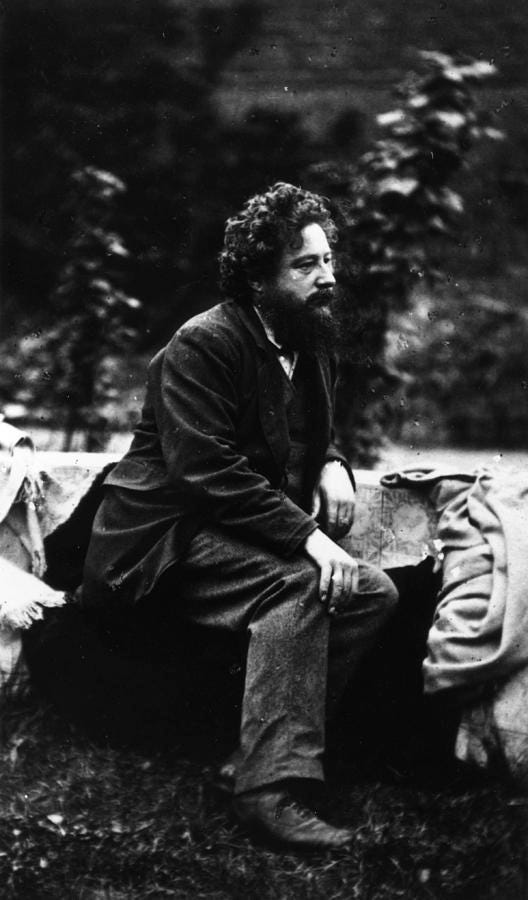As i hope to be offering my thoughts more regularly here at 'the book of amos', I was pleased to read this account of Teresa of Avila's style which i'd say involves having a conversation with oneself in the presence of others which is both openly yet somehow subversively characterized by a rhetorical humility that is alive and offers sustenance to both the author and the reader. For that is how i tend to go about saying the things i’ll have to say here, probably because I can't go about it or come to do it in any other way that feels right or worth the trouble.
From Peter Tyler’s The Return to the Mystical: Ludwig Wittgenstein, Teresa of Avila and the Christian Mystical Tradition.
There’s a tentativeness and an uncertainty in this ‘mystical theology’, a tension of sorts between the ontological and the eschatological, a tension that remains there too when one searches along with others, employing the same style of rhetorical humility, inviting more in the way of a conversation rather than a debate about ways to shape the socio-political terrain. Offering something more like a labor of love, something more apt to be shaped by carefully debated and determined shared purposes. Ecological purposes. Locally oriented and crafted purposes, as much as that again becomes possible. Eventually joined with customs and rites and sustainable ways to take one’s leisure.
More meaning. Even in our commerce, at our vocations. A slowed down and attentively cultivated sense of awe and wonder, the attitude invited by ‘mystical theology’, can transform the most rigorous labor into a kind of joy.
“The true secret of happiness lies in the taking a genuine interest in all the details of daily life.” - William Morris
As the imperative for us to chart a new course seems quite beyond dispute, or so it seems to me, one immersed in ‘mystical theology’, even a watered down secular variety, sounds inviting.


